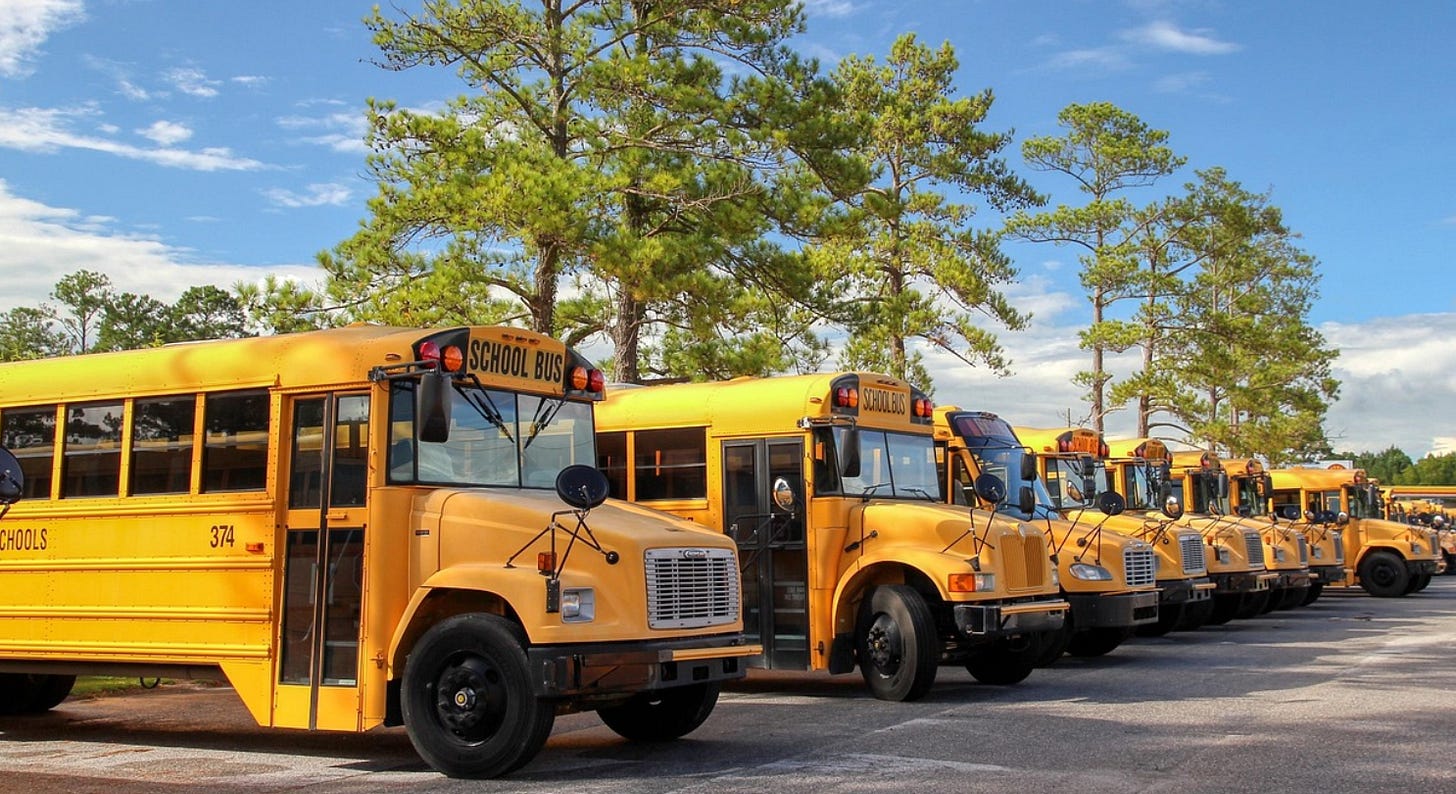As Expected, Bipartisan Pressure, Legal Threats Force White House to Release Withheld School Funds
Despite alarmist reporting across the state, the Trump administration announced on Friday the release of the final $18 million in federal education funding to Vermont, ending a month of profound uncertainty for school districts that rely on the money for after-school programs, English language instruction, and adult education. This was expected to happen, as reported by Compass Vermont.
The reversal followed a powerful bipartisan backlash in Washington and a multi-state lawsuit that accused the administration of unconstitutional overreach.
The release of the funds was met with relief across the state. "Vermont school districts will now be equipped to begin the school year knowing they have the resources to staff critical positions," Vermont Education Secretary Zoie Saunders said in a statement reported by VTDigger. The funds, part of six federal grant programs, have historically been made available on July 1, but were frozen by the White House hours before the start of the new fiscal year.
A Sigh of Relief in Vermont Schools
For weeks, school officials were left scrambling. Budgets for the 2026 fiscal year had been set with the assumption that the federal dollars would arrive as usual. The Hardwick Gazette reported that as a result of the freeze, the Winooski School District faced a potential $700,000 budget hole, while the Harwood Unified Union School District had to suspend professional development programs for its teachers.
The funding supports some of the state’s most vulnerable populations, including students in high-poverty districts, those needing English language instruction, and adults seeking a high school diploma or GED certificate.
“We’re relieved to move forward without disruption and hope that future decisions will protect the stability our educators, students, and families rely on,” Sarah Haven, the director of finance and operations for the Winooski School District, told VTDigger.
The Administration’s Justification: A “Radical Leftwing Agenda”
The Trump administration’s rationale for the freeze, a critical factor detailed in national news reports, was to conduct a "review" of the $6 billion in nationwide funding. In a contentious interview on CBS’s “Face the Nation,” White House Office of Management and Budget (OMB) Director Russell Vought stated the administration was ensuring that taxpayer money was not being used to "subsidize a radical leftwing agenda," citing the teaching of Critical Race Theory and funding for "illegal immigrant advocacy organizations" as examples. This justification was met with fierce criticism from educators and lawmakers who said it politicized long-standing, essential education programs.
A Bipartisan Backlash in Washington
Perhaps the most crucial element in forcing the administration's hand was the significant, bipartisan pressure from Congress. While criticism from Democrats like Senator Bernie Sanders was expected, it was the dissent from within the President’s own party that underscored the political risk of the funding freeze.
On July 17, ten Republican senators, including moderates Susan Collins of Maine and Lisa Murkowski of Alaska, sent a letter to the OMB demanding the immediate release of the more than $5.5 billion still being withheld nationally. In a report by Compass Vermont, the outlet detailed how the senators argued that the freeze contradicted President Trump’s stated goal of returning control of K-12 education to the states. Their letter, as cited by Compass Vermont, also pointed out that the move was harming programs with "longstanding GOP support, such as migrant education in agricultural regions."
States Mount a Legal Challenge
As political pressure mounted, a legal challenge was also taking shape. According to a press release from her office, Vermont Attorney General Charity Clark joined 24 other states and the District of Columbia in a federal lawsuit against the Trump administration. The suit, filed in mid-July, accused the White House of "unlawfully and unconstitutionally freezing" the congressionally approved funds.
The lawsuit alleged that the administration’s actions violated the Impoundment Control Act of 1974, which limits the president's ability to withhold funds appropriated by Congress, and violated the constitutional separation of powers, according to legal analyses published by EdWeek and other national outlets.
"Let’s be clear: Today the administration solved a problem of its own making by finally releasing funding for our public schools that it illegally and unconstitutionally withheld,” Sen. Bernie Sanders, I-VT, said in a statement released by his office, capturing the sentiment of many who had opposed the freeze.
The combination of a rare, bipartisan rebuke from Congress and the looming threat of a massive legal battle appears to have been decisive, bringing an end to a period of manufactured crisis for schools in Vermont and across the nation.


